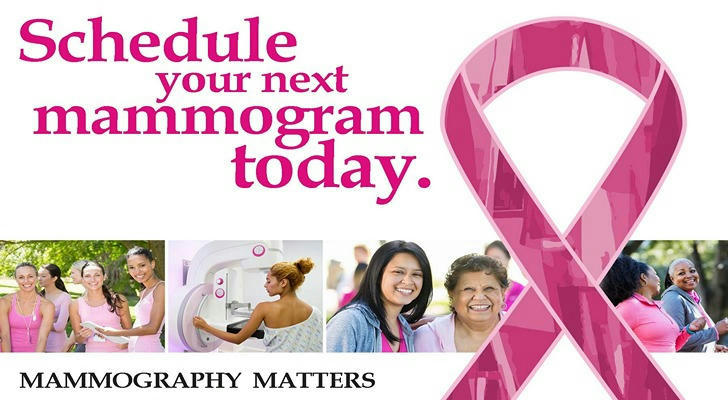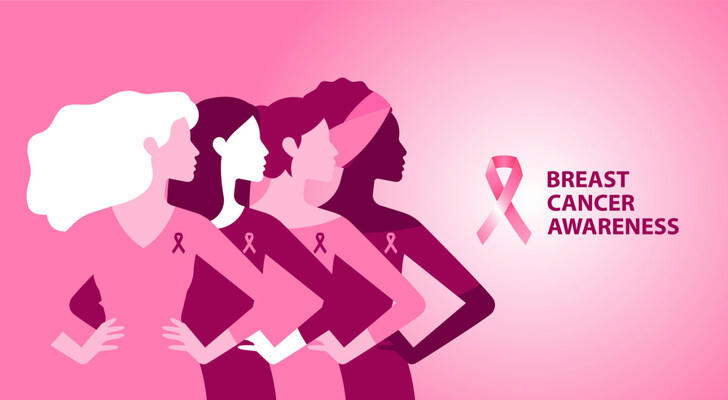2025 Women’s Health Reminder: How to prevent breast cancer through mammogram?
Breast cancer continues to be one of the most frequently diagnosed cancers among women across the globe. The good news? Early detection gives women a better shot at successful treatment and long-term survival. One of the simplest and most reliable tools in the fight against breast cancer is the mammogram—a quick, low-cost screening method that can make a big difference, especially for women aged 40 and above.

If you’ve ever wondered whether you should get screened, or how effective mammograms really are, here’s a breakdown that may help you take the next step for your health.
🌸 Why Mammograms Matter
Mammograms are specialized X-rays used to spot breast cancer before any symptoms appear. Even when a lump can’t be felt, a mammogram might still catch it. This early detection gives doctors a chance to treat cancer before it becomes more serious, reducing the need for aggressive treatment later on.
Think of it as a health check that could save your life. You might spend just 20 minutes getting screened, but the benefits can be long-lasting.
✅ How Well Do Mammograms Work?
• Strong Accuracy: Mammograms have a sensitivity rate of around 87%, meaning they correctly detect about 87 out of every 100 cases of breast cancer. While they may be slightly less accurate in women with dense breast tissue, they are especially effective in women over 40 and those with more fatty breast tissue.
• Catching Cancer Early: One of the biggest advantages of mammograms is their ability to find breast cancer early—often before it spreads. Research has shown that regular screening in women between the ages of 40 and 74 can significantly lower the chance of dying from breast cancer. In fact, studies show that mammography can reduce the relative risk of death by about 15% for women who get screened regularly.
• Better Treatment Options: When breast cancer is found early through routine screening, it’s often smaller and hasn't reached nearby lymph nodes. This means that treatment can be less invasive and outcomes are generally more positive. Women who find their cancer early typically have more options and better survival rates.
🌼 Regular Screening: What You Gain
There’s a strong case for starting regular mammograms at age 40. The U.S. Preventive Services Task Force recommends screenings for women aged 40 to 74 because the benefits are especially noticeable in this age group.
• Lower Risk of Death: Numerous studies confirm that women who get screened regularly have a lower risk of dying from breast cancer. The earlier it’s caught, the easier it is to treat.
• Less Risk of Advanced Cancer: Routine screenings reduce the likelihood of being diagnosed with later-stage cancers (like stage IIB or beyond), which are harder to treat and require more intensive care.
• Peace of Mind: Even if your results come back normal, knowing you're keeping an eye on your health can bring confidence and reassurance.
💡 How to Get a Mammogram—Even Without Insurance
Worried about cost? Don’t let that stop you from getting screened. Several programs exist to make mammograms accessible and affordable:
• National Breast and Cervical Cancer Early Detection Program (NBCCEDP): This is a CDC-backed initiative that helps women without insurance or underinsured. If you meet certain income requirements between the ages of 40 and 74, you are eligible for low-cost mammograms.
• Local Health Departments: Many state and county health departments offer affordable breast cancer screening options. A quick phone call or visit to their website can let you know what’s available in your area.
• Community Clinics and Mobile Units: Some nonprofit organizations and hospitals run mobile mammography units or offer pop-up clinics. These are especially helpful in rural or underserved areas.

👀 What to Expect from a Mammogram Appointment
If you've never had a mammogram before, you might be nervous—but knowing what to expect can ease your mind:
• The procedure usually takes about 20 minutes.
• You’ll stand in front of a special X-ray machine, and your breast will be gently compressed to get clear images.
• Some women report mild discomfort, but it's brief.
• Your results are often ready in a few days, and your doctor will guide you on next steps if anything needs follow-up.
🏥 Finding Mammogram Services Near You
If you’re unsure where to go for a mammogram, here are some helpful options:
• National Breast Cancer Foundation (NBCF): This foundation works with hospitals across the U.S. to offer mammograms for women who meet certain eligibility requirements. Their website features a searchable directory of local facilities that provide these services.
• Hospital Directories: Many hospitals list mammogram availability, costs, and appointment times online. Use search terms like “mammogram near me” or check local healthcare networks.
• Educational Guides: NBCF and other organizations also provide helpful resources to guide you through what to expect before, during, and after a mammogram.
📖 Real Case - Meet Sophie
Sophie, 42, a school teacher, perfectly illustrates the importance of regular screening - even if you feel perfectly healthy.
Sophie lived an active and optimistic life and insisted on annual physical examinations. At the age of 40, she followed her doctor's advice and started getting mammograms. In 2023, her screening results showed that she had some tiny calcification deposits in her body, and something looked wrong. Doctors then performed an ultrasound and eventually a biopsy. The final diagnosis: early breast cancer.
Thanks to the early detection, Sophie only needed a minor surgery and a few rounds of radiation therapy. She avoided chemotherapy and soon returned to her normal life. Now, she shares her story in the hope of inspiring other women to take their health seriously.

🧠 Final Thoughts: Don’t Wait—Start Screening Today
Mammograms are more than just a medical test—they’re a powerful tool that gives you control over your health. They’re fast, affordable and incredibly effective at catching breast cancer early, when it’s easiest to treat.
If you’re 40 or older, or have a family history of breast cancer, talk to your doctor about scheduling your next screening. It’s a small step that could make a world of difference.
